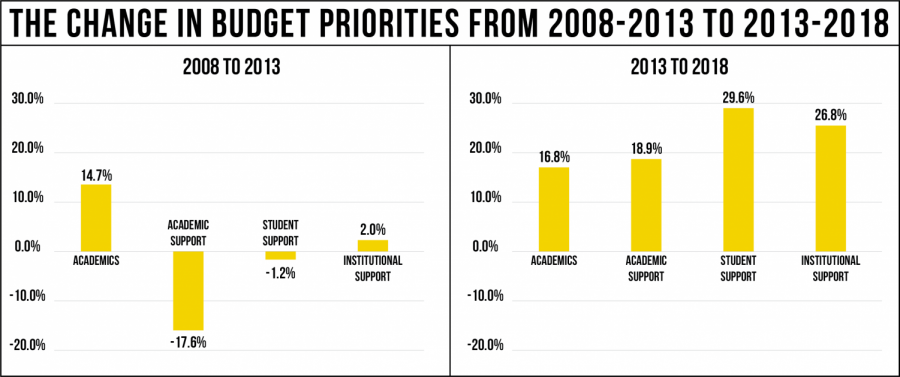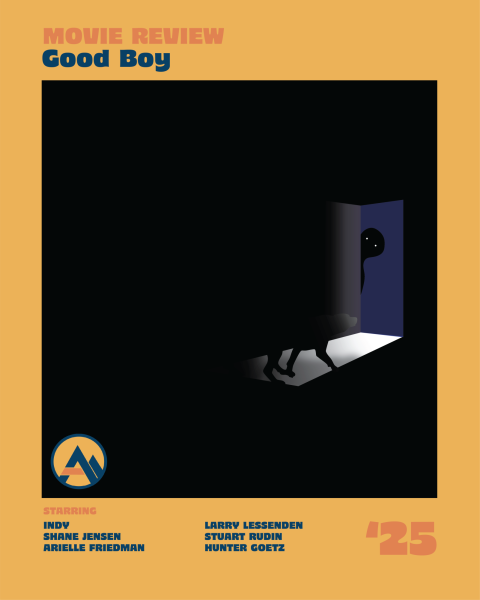Faculty salary report shows decline in faculty salaries relative to institutional peers, cost of living
April 10, 2019
The App State Faculty Senate Budget Committee commissioned a report to study faculty salaries in March and found changes in the priorities of App State’s budget over recent years.
Todd Cherry, chair of the Department of Economics, wrote in an email that the report aimed to add to the discussion about App State faculty salaries.
“There were no preconceived ideas, but the numbers indicate that academics has not been a priority for the campus. This is a problem because it is the core function of a university,” Cherry wrote in an email.
Salaries for App State professors have declined relative to institutional peers and the cost of living in Boone, according to the report.
“In actual numerical terms, our purchasing power—which is what you can do with the money you get—is declining,” history professor and UNC Faculty Assembly delegate Michael Behrent said.
According to the report, before 2013, the academic budget grew faster than support budgets for the institution and students.
The report stated that “in the most recent five-year period, funding for each of the three support budgets grew considerably faster than funding for the academic budget.”
“That does sort of suggest priorities that many of us think are inconsistent with the primary mission of the university,” Behrent said.
Behrent said this shift would not be a problem if faculty salaries were not struggling.
“University leadership recognizes that providing competitive faculty salaries is not only ethical but also vital to the health of the university as a whole,” chief communications officer Megan Hayes wrote in an email.
The report also recommended setting goals to raise faculty salaries, reviewing where funds are spent and reallocating those funds to agree with the university’s mission and learning from peer institutions.
Behrent said Faculty Senate has encouraged professors to ask their department chairs to prioritize faculty salaries and attend campus budget presentations on April 12.
“Because the issue of prioritizing salaries is such a big issue, we intend to encourage as many faculty to show up at those, really as a way of holding the administration accountable to what it claims is its commitment to dealing with faculty salaries,” Behrent said.
Hayes wrote in an email that faculty who attend the budget presentations will notice a request for “merit-based faculty increases” in the deans’ budgets.
“This represents an important shift in Academic Affairs budget prioritization, and one that is separate and apart from the Chancellor’s advocacy for a new funding model for the university,” Hayes wrote in an email.
Cherry wrote that the Faculty Senate Budget Committee commissioned the report, but he has not taken any steps to present it to anyone else.
“The report provides a general summary of our current budget priorities. It doesn’t answer all the questions, but it should help us make better decisions in the future,” Cherry wrote in an email.













